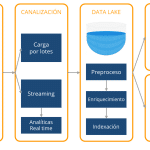Software composition
To fit more than one website on a single dedicated shared server, the software must provide an implementation that isolates each site’s code and successor privileges to certify adequate security, although each takes a slightly different approach. Each hosted site should have its own unique IP address to avoid conflicts arising from the interpretation of communication by the servers.
The two most common web server possibility software are Apache for Linux and IIS for Windows. Dedicated shared server hosting generally uses a web-based control panel system, such as c panel, direct admin or one of many other control panel products. Many of the larger hosting companies use their own custom developed control panel.
The hosting service should include system delegation since it is shared by many users; while this is a benefit for users who do not want to deal with dedicated shared server delegation, it could be a problem for people with heavy usage who want more control. In generic, dedicated shared server hosting will be inappropriate for users who require extensive software explanation outside of what the hosting provider supports.
Most of the dedicated shared servers are based on the active Linux system and the lamparon software package, which is framed on the small cost of the open source software. But some providers offer free or Microsoft Windows-based solutions.
Hardware requirements
After taking into account the software aspect of the dedicated shared server hosting, the other most important thing to take into account is good and stable hardware features to accept any application you wish to run on the server. If your goal is to fit several heavy web sites, you should make sure that the server has adequate storage capacity, i.e. a hard drive that is large enough to hold all the data. The drives that you choose additionally have to be fast enough to improve good download and upload speeds when consenting to any of the hosted websites.
If you are operating on a minuscule budget that can only accommodate a ten thousand revolutions per minute disk, do so and buy a more including tasteful size to improve your performance. Although the 10,000 revolutions per minute or higher disk should give you better performance. Stay away from the old slow disks; you will have very high disk I/O levels, as well as bottlenecks in your server due to their slow speeds.
The dedicated shared server must also have sufficient memory speeds. The recommended tiny memory size for any server should be at least 512 megabits. Having good memory will improve the performance of your server under heavy loads. The changing levels are mainly influenced by the system memory. Therefore, it is advisable to obtain adequate system memory to avoid slow server response.
When thinking about the central processing platoon, it will be up to you to consider which one works best for you or which one you prefer between Intel and AMD, but no matter which configuration you choose, dual central processing units would be the best possibility for a dedicated server environment. If you don’t have the budget for a dual configuration, consider at least a single 2.4 GHz central processing platoon.
Uses of Dedicated Shared Server Hosting
Dedicated shared server hosting is very useful, especially for small businesses that want a website but can’t afford the costs of buying and persevering with a server. The server space required for a website can sometimes be so small that it would not be a viable idea to buy a dedicated server and put all your energy into setting it up and maintaining it.
In such circumstances, dedicated shared server hosting would be the best option, as it would be very affordable and you would not need to invest additional staff to run the server. Without retention, it is important to keep in mind that shared dedicated server hosting can be implemented in two main ways, using either name-based or Internet Protocol-based potential hosting.
In name-based potential hosting, also called shared Internet protocol hosting, the potential host serves multiple host names on a single machine using a single Internet protocol address. In this configuration, when a web browser requests a referee from a web server via http://1.1, it includes the requested host name as part of the request. The server determines which site to load based on the information provided by the request.
On the other hand, in a potential Internet Protocol-based hosting, also called dedicated Internet Protocol hosting, each potential host has a different Internet Protocol address. The server configuration consists of numerous virtual and physical interfaces for the network connection. The server application binds to a particular site by using the codes received from the Internet Protocol address provided by the client when logging in.
The main reason behind the dedicated Internet Protocol is to differentiate between shared arbitration and certificates. This means that the Internet Protocol based configuration is much better than the name based one in terms of Internet security on a dedicated shared server hosting.
Dedicated shared server hosting shortcomings
The main disadvantage of using a dedicated shared server hosting is the fact that you do not have direct access to the system in case you want to make frequent changes, therefore, you must rely on the server administrators to provide support when the need arises. All name-based virtual hosts using the same Internet Protocol address must share the same digital certificates. This categorically means that the server cannot determine which secret essence to use to establish a connection, thus compromising the security of the particular website.









